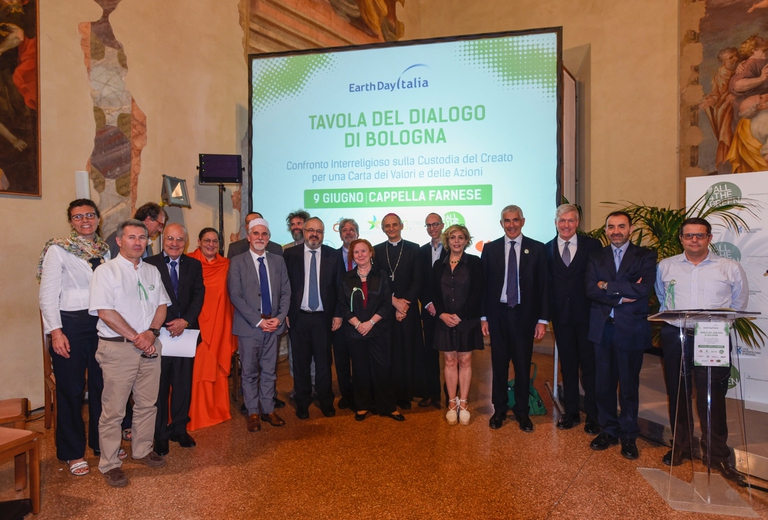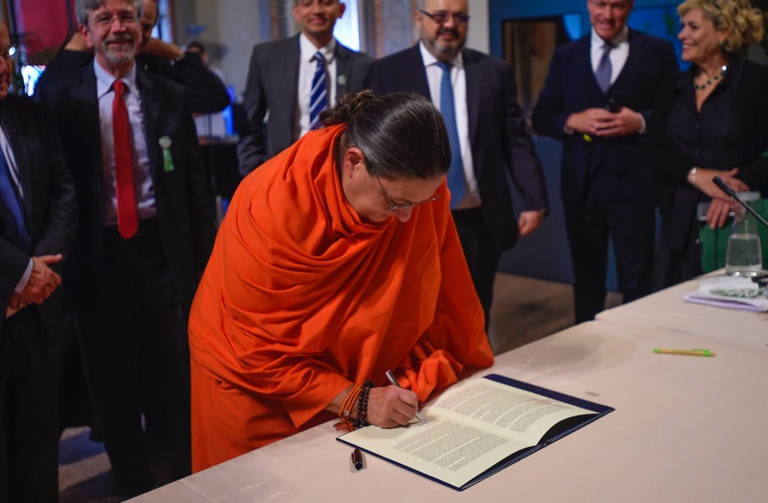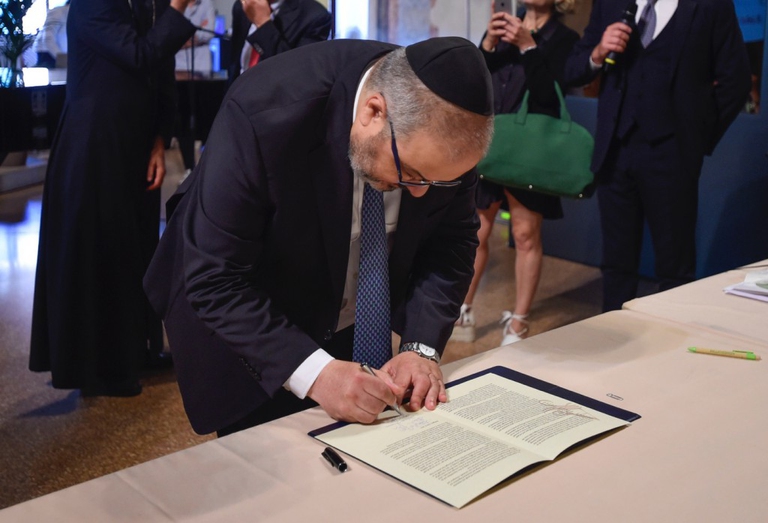
South African court dismisses a major lawsuit by 140,000 Zambian women and children against Anglo American for Kabwe lead poisoning. A setback for affected communities enduring the lasting impact of lead contamination.
Christians, Muslims, Jews, and Hindus have the same goal at heart: protecting our environment and common home. We live in a world made up of diverse religions and it’s beautiful to see how we can all work together and overcome conflicts in the name of a common will. This was the starting point for the
Christians, Muslims, Jews, and Hindus have the same goal at heart: protecting our environment and common home. We live in a world made up of diverse religions and it’s beautiful to see how we can all work together and overcome conflicts in the name of a common will. This was the starting point for the interfaith dialogue held in Bologna, Italy, organized by Connect4Climate in preparation for the G7 Environment.
As part of the All4TheGreen week, religious leaders gathered to urge the G7 Environment Ministers to boldly act on climate change and environmental protection. Faith representatives engaged in dialogue about how their faith traditions call for environmental protection and to express the importance of protecting our Earth, our Our Common Home, and to highlight the important role religions can take in tackling climate change. “Never stop looking for consensus among governments to protect Our Common Home,” said Mons. Matteo Maria Zuppi, Archbishop of Greater Bologna, during the interfaith dialogue.
In a letter sent to the interfaith dialogue, H.H. Bartholomew I, Ecumenical Patriarch of Constantinople, wrote: “Let us remind our nations that the Earth is not a possession but a partner on our journey.” His words were shared with the leaders present in Cappela Farnese where a message from Pope Francis was also delivered. “Action is the key word in order to transform this desert into a forest”, reminded the Holy Father.
During the interfaith dialogue, the multi-religious leaders, in a call for world leaders to act on climate change, emphasized the urgency of developing a global green economy and building a more efficient, conscious and mindful society in order to end poverty. As Reverend Russel emphasized, “we cannot address poverty without addressing environmental protection and climate change.”
The faith representatives also underlined the imperative for humanity to moderate its consumption and conserve a healthy environment for all living beings. “Mankind has an obligation to make the planet a better home for all”, stressed Alfonso Arbib, President of the Assemblea Rabbinica dell’Unione delle Comunità Ebraiche Italiane.
As a result of this meeting, the religious representatives signed the “Bologna Interfaith Charter: Living Our Values, Acting for Our Common Home”, which was delivered to the G7 Environment Ministers on the opening day of their meeting. The Charter states that “The Bologna G7 Environment Meeting is taking place at a moment of both great peril and great promise. With the Paris Agreement in danger, we must do everything possible to ensure its successful implementation. Due to the scale and pace of harm that has already been inflicted upon our planet, we are the last generation who can turn this crisis around before it is too late. At the same time, implementing climate change solutions creates new opportunities to improve human well-being and promote a more just economy.”
Siamo anche su WhatsApp. Segui il canale ufficiale LifeGate per restare aggiornata, aggiornato sulle ultime notizie e sulle nostre attività.
![]()
Quest'opera è distribuita con Licenza Creative Commons Attribuzione - Non commerciale - Non opere derivate 4.0 Internazionale.
South African court dismisses a major lawsuit by 140,000 Zambian women and children against Anglo American for Kabwe lead poisoning. A setback for affected communities enduring the lasting impact of lead contamination.
Controversial African land deals by Blue Carbon face skepticism regarding their environmental impact and doubts about the company’s track record, raising concerns about potential divergence from authentic environmental initiatives.
Majuli, the world’s largest river island in Assam State of India is quickly disappearing into the Brahmaputra river due to soil erosion.
Food imported into the EU aren’t subject to the same production standards as European food. The introduction of mirror clauses would ensure reciprocity while also encouraging the agroecological transition.
Sikkim is a hilly State in north-east India. Surrounded by villages that attracts outsiders thanks to its soothing calmness and natural beauty.
Sikkim, one of the smallest states in India has made it mandatory for new mothers to plant saplings and protect them like their children to save environment
Chilekwa Mumba is a Zambian is an environmental activist and community organizer. He is known for having organized a successful lawsuit against UK-based mining companies.
What led to the Fukushima water release, and what are the impacts of one of the most controversial decisions of the post-nuclear disaster clean-up effort?
Nzambi Matee is a Kenyan engineer who produces sustainable low-cost construction materials made of recycled plastic waste with the aim of addressing plastic pollution and affordable housing.










